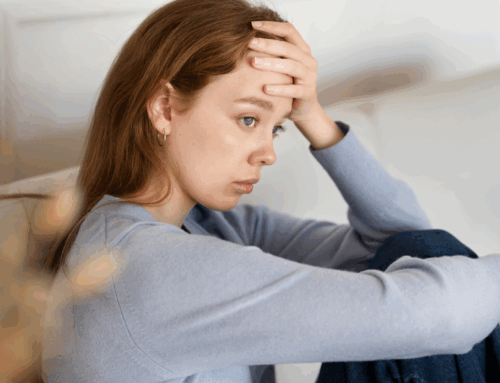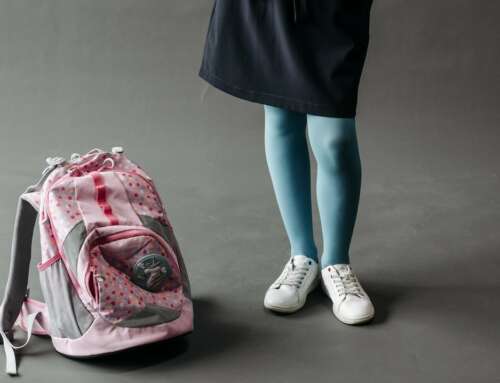Anxiety can be defined as ‘a state consisting of psychological and physical symptoms brought about by a sense of apprehension at a perceived threat’. Fear is similar to anxiety, except that with fear the threat is, or is perceived to be, more concrete, present, or imminent.
Presentation
The psychological and physical symptoms of anxiety vary according to the nature and magnitude of the perceived threat, and from one person to another. Psychological symptoms may include feelings of fear and dread, an exaggerated startle reflex, poor concentration, irritability, and insomnia.
In mild to moderate anxiety, a surge in the hormone adrenaline (epinephrine) gives rise to physical symptoms such as tremor, perspiration, and muscle tension.
In severe anxiety, hyperventilation (over-breathing) can lead to a fall in the concentration of carbon dioxide in the blood. This gives rise to an additional set of physical symptoms, among which chest discomfort, numbness or tingling in the hands and feet, dizziness, and faintness.
Purpose
Fear and anxiety can be a normal response to life experiences, a protective mechanism that has evolved both to prevent us from entering into potentially dangerous situations and to assist us in escaping from them should they befall us regardless. For instance, anxiety can prevent us from coming into close contact with disease-carrying or poisonous animals such as rats, snakes, and spiders; from engaging with a much stronger or angrier enemy; and even from declaring our undying love to someone who is unlikely to spare our feelings.
If we do find ourselves in a potentially dangerous situation, the fight-or-flight response triggered by fear can help us to mount an appropriate response by priming our body for action and increasing our performance and stamina.
In short, the purpose of fear and anxiety is to preserve us from harm, and, above all, from death—whether it be literal or metaphorical, biological or psychosocial.
Problem
Although some degree of anxiety can improve our performance on a range of tasks, severe or inappropriate anxiety can have the opposite effect and hinder our performance. Thus, whereas a confident actor may perform optimally in front of a live audience, a novice may suffer from stage fright and freeze.
– Neel Burton M.D.
Read More: Is Anxiety Psychological or Physical?







Leave A Comment